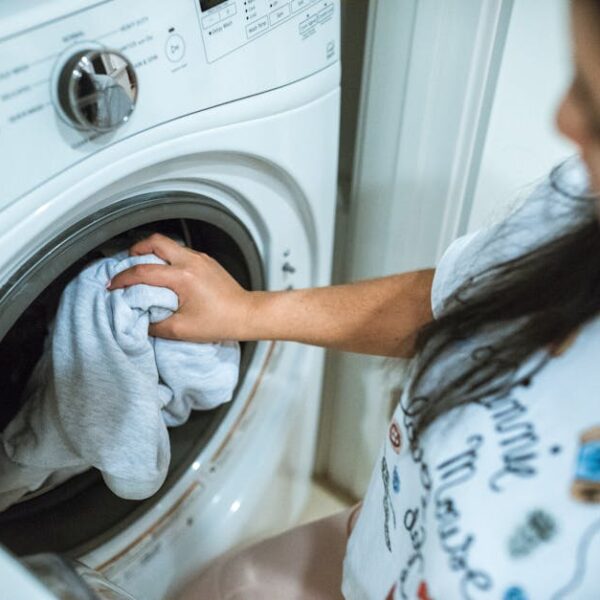The prospect of starting a cleaning business can be incredibly rewarding. Not only can it provide a steady source of income, but it’s also characterized by low start-up costs, consistent demand, high scalability, flexibility in business operations, and minimal skill requirements. Read on to discover why this venture might just be the perfect fit for your entrepreneurial dreams.
Low Startup Costs
One of the main appeals of starting a cleaning business lies in its affordability. Unlike certain sectors that require significant initial investment, a cleaning business can be launched on a modest budget. Here are some essential initial expenses:
- Cleaning equipment
- Transportation
- Professional licenses
Moreover, keep in mind : you can minimize your startup costs by renting or purchasing second-hand cleaning equipment. This strategic approach can considerably reduce your overhead, enabling you to turn a profit faster.
Consistent Demand
Everybody appreciates a clean space. Consequently, cleaning services are always in demand, whether for homes, offices, or commercial establishments. To ensure a perpetual influx of clients, consider offering package deals and introducing loyalty programs.
When getting started, you might wonder where to focus your efforts: residential or commercial cleaning? While both options have their perks, they also come with unique challenges. Residential cleaning allows for a more personalized approach, often leading to recurring bookings. Commercial cleaning, however, tends to be more profitable, albeit more competitive.
Easy to Scale
One of the beauties of a cleaning business is that you can start small and gradually expand your operations. You might begin as a sole cleaner, but with strategic planning, you can eventually manage a full-fledged team.
Here’s a simple checklist for scaling your business:
- Consider hiring beyond your capacity to prepare for increased demand.
- Equip your teams with advanced cleaning gear to boost productivity and service quality.
- Diversify your offerings to attract a broader clientele.
But, remember : while growing your business is exciting, it’s crucial to manage your expansion wisely to avoid overextension.
Potential for High Profit Margins
With prudent management skills and minimal overheads, the profitability of cleaning businesses can be quite impressive. Streamlining your operations, such as scheduling and accounting, can optimize your earnings. However, be prepared for possible unexpected expenditures that could affect your bottom line.
To maximize your profit margins, consider investing in your staff’s training. Moreover, adept pricing of your services prioritizing quality and value can result in a significant return on investment.
Flexibility in Business Operations
With a cleaning business, you’re not confined to the typical nine-to-five grind. You can set your own hours and choose the areas you want to service, thus offering a level of freedom not possible with traditional jobs.
Tip: Tailoring your operating hours to peak demand times and strategically planning your team’s schedules can vastly optimize your operations.
Minimal Skill Requirement
Last but not least, the cleaning industry is a low-barrier-to-entry sector. There’s no need for specialized knowledge or high-level skills – all that’s required is a will to work and an attention to detail. It’s an accessible business opportunity for entrepreneurs of all walks of life. Some basic skills needed include:
- Understanding of cleaning techniques
- Knowledge of cleaning safety protocols
- Good customer service skills
So, equip yourself and your team with these basic skills and plunge into the promising world of the cleaning business.
Potential for High Profit Margins
Who doesn’t love the thought of a high return on investment? With a cleaning business, this is a likely outcome. With low overhead costs and effective management, you can secure substantial profit margins. The secret lies in meticulous and strategic streamlining of your operations. However, always remember to set aside an emergency fund as unexpected expenditures can crop up at any time.
To make your cleaning venture significantly profitable, consider the following strategies:
- Invest in your team – Providing training can enhance the efficiency of your employees, resulting in the provision of a more premium, quality service that you can charge accordingly for.
- Pricing strategies – Don’t undervalue your services. Make sure the pricing reflects the quality of work and materials used. Strike a balance between cost-effectiveness for yourself and value for money for your customers.
Flexibility in Business Operations
The beauty of owning a cleaning business is the incredible flexibility it provides. Forget the corporate clock-in and clock-out routine. As a cleaning business owner, you have the liberty to decide your operating hours, the areas you want to service and the direction you want your business to move in.
Pro Tip: Be strategic in determining your working hours. Aim to operate during peak demand times. Also, developing an effective work schedule for your team can significantly enhance productivity, helping you take your cleaning business to new heights.
Minimal Skill Requirement
Thinking you need a degree in rocket science to run a successful business? Think again. The cleaning industry requires no special knowledge or advanced skillset. Here are a few essential skills you will need:
- Basic understanding of cleaning techniques
- Familiarity with cleaning and safety protocols
- Exemplary customer service skills
- A knack for time and team management
Pro Tip: Always invest time in learning the basic cleaning skills or enrol in short courses to continuously improve. Providing your staff with regular training will ensure high service quality, leading to customer satisfaction and business growth.
Starting a cleaning business could be the start of your entrepreneurial success story. Remember, the key is to begin small, plan big, stay focused and always keep growing. Happy Cleaning Biz Journey!
Key Takeaway:
- A cleaning business is a cost-effective entrepreneurial opportunity due to minimalistic start-up requirements.
- Demand for cleaning services is consistent, offering a steady source of income.
- The scalability of a cleaning business can be managed effectively to prevent overextension.
- High profit margins can be expected with efficient management and low overheads.
- Flexibility in operating hours offers a significant advantage over traditional jobs.
- The cleaning industry does not require specialized skills or knowledge, making it an accessible venture.
Embarking on a journey to start a cleaning business can be empowering and rewarding. The initial steps might seem daunting, however, with a bit of planning and perseverance, it could be the doorway to your entrepreneurial success. Remember, every great business started small. So hold onto your dream, start where you can, and remember – the sky’s the limit!
FAQs
Q: What are ways one can save on startup costs for a cleaning business?
A: You can save on startup costs by renting instead of buying cleaning equipment, purchasing second-hand items, and finding cost-effective transportation.
Q: How can one maintain a consistent demand for a cleaning business?
A: Offering package deals or loyalty programs to your customers can ensure a consistent demand. Also, diversifying your cleaning services can help tap different market segments.
Q: How can I effectively scale my cleaning business?
A: By strategically hiring employees, investing in advanced cleaning equipment and broadening your array of services, you can effectively scale your business. Remember to manage growth wisely to avoid overextension.
Q: How can I maximize the profit margin of my cleaning business?
A: Streamlining operations for cost-effectiveness, training staff for enhanced service quality, and pricing your services strategically can help maximize your profit margin.
Q: Are there any skills required to start a cleaning business?
A: Basic understanding of cleaning techniques and customer service skills are important in a cleaning business. Although the business doesn’t require any specialized knowledge, continuous learning and training can contribute to business growth.
Feel free to share this article and explore more posts on our website for additional insights and tips.












